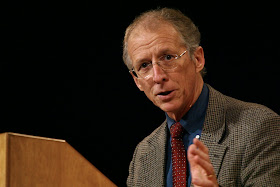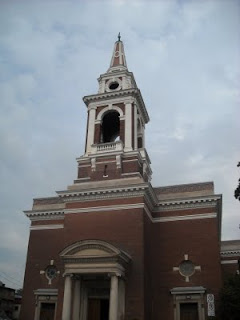This term I have been teaching Ancient & Mediaeval Political Theory, a course that is crosslisted between the philosophy and political science departments at Redeemer. Yesterday we heard two fine student presentations on Thomas Aquinas’ writings on the virtues (Summa Theologica Ia-IIae, qq. 55-64). Here we encountered his explanation of the four cardinal natural virtues, viz., prudence, justice, fortitude and temperance, which he borrowed from Augustine, the stoics and, ultimately, Plato, even as his account of these virtues is basically Aristotelian.
Then we were introduced to the three theological virtues of faith, hope and charity or love. The difference between the natural and theological virtues is that, while the former are acquired through habitually choosing the right mean between vicious extremes, the latter are directly infused in us by God without our effort and are not defined by a mean. It is impossible, e.g., to love God to excess. Thomas, of course, took these virtues from the famous 13th chapter of Paul’s first letter to the Corinthians.
Evangelical and Reformed Christians often express discomfort with Thomas’ distinction between natural and supernatural virtues, as they do with the parallel synergism of Roman soteriology which suggests that we can contribute so much to our own salvation but must then wait for God to complete it through his grace. This distinction appears to downplay the role of God’s grace in enabling even our own response to his call.
But there is something else that appears to indicate that Thomas’ identification of faith, hope and love as virtues is not entirely without difficulties. It further suggests that perhaps his debt to Augustine is not as great as it might have been. Augustine famously defined virtue as rightly ordered love. The two cities are distinguished from each other precisely by their different loves. The city of God loves God above all that he has created, while the city of this world loves the creature rather than the creator. Both love, but in the latter case love is ill-directed and out of order.
If so, then perhaps faith, hope and love are not virtues at all, but created human functions that are themselves subject to virtuous or vicious use. Just as we can love inordinately, so also can we put our faith in the wrong things. Everyone, even the professed atheist, puts her faith in something, whether it be reason, material or biological forces, economic growth, a messianic proletariat or the continual satisfaction of subjective desires. Similarly we have a tendency to misplace our hope in things that will ultimately disappoint, as we are so often encouraged to do in election campaigns and even ordinary advertising.
As I am painfully aware that there are scholars better versed in Thomas’ works than I am, I would be interested to know from them how Thomas might address this apparent difficulty in his account of the virtues. I do not, of course, exclude the possibility that it is I who am missing something here.







